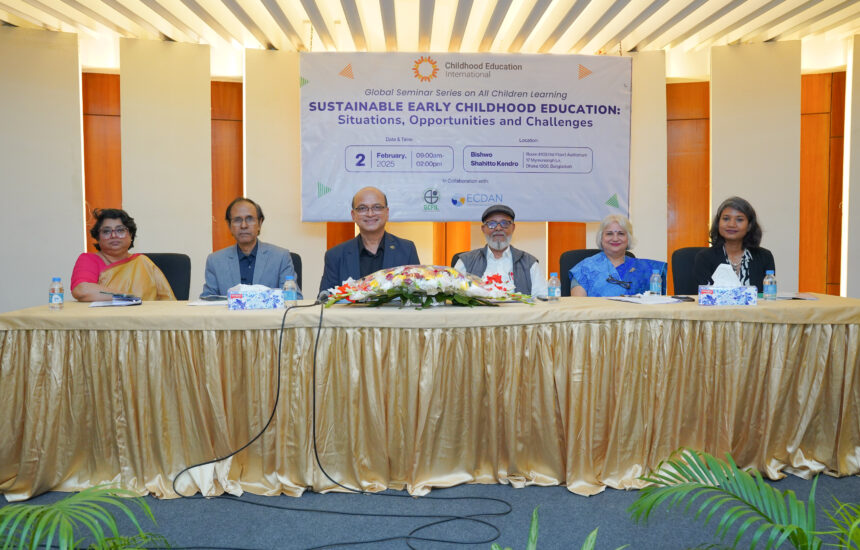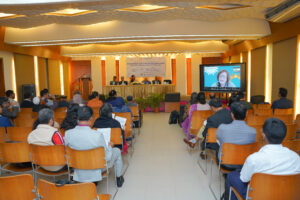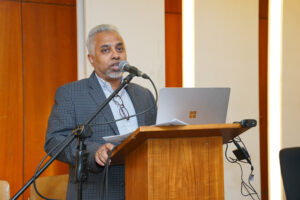Global Seminar in Bangladesh Highlights Early Childhood Education Challenges & Opportunities


Childhood Education International recently organized the Global Seminar on Sustainable Early Childhood Education: Situations, Opportunities, and Challenges with support from the Global Center for Innovation and Learning (GCFIL) and the Early Childhood Development Action Network (ECDAN). The event was held at the nonprofit Bishwashahitto Kendro in Dhaka, Bangladesh.
The seminar brought together representatives from organizations in Bangladesh and abroad to discuss the past, present, and future of early childhood education, as well as explore the challenges and opportunities it faces in Bangladesh and globally.
 At the event, Diane Whitehead, President and CEO of CE International, highlighted the importance of collective action and shared appreciation for the work of the attendees to advance children’s education.
At the event, Diane Whitehead, President and CEO of CE International, highlighted the importance of collective action and shared appreciation for the work of the attendees to advance children’s education.
“It is a very complicated world, especially for children,” Diane said. “To create a truly holistic education system and a nurturing ecosystem for children’s development, we must keep our promises strong.”
Shekufeh Zonji, Global Technical Lead at ECDAN, presented on ECDAN’s 2024-2028 strategy and role as a global network. She also shared her experience working on global campaigns and collaborating with organizations such as UNICEF and the World Bank.
The keynote presentation, delivered by M. Shahriar Shafiq, presented an overview of the status of children’s education in Bangladesh, discussed challenges, and presented recommendations for the future. Noting Bangladesh’s commendable progress in expanding early childhood education, he also pointed to challenges related to inequity in access, teacher shortages and training, accessibility in schools, funding constraints, and more. He highlighted the Government of Bangladesh’s emphasis on universal pre-primary education; active engagement by NGOs, local communities, and faith-based organizations; and global partnerships as opportunities and recommended exploring innovative financing options, strengthening teacher training, promoting inclusive education, fostering public-private partnerships, and addressing climate change.
Following the keynote presentation, a panel discussion featured Mohammad Mohsin, Dr. Jeena D. Hamdani, Mehrun Nahar, Tapan Kumar Das, and Iftat Farhana. Talat Mahmud moderated the panel. The panelists shared their personal experiences and provided recommendations for pre-primary education in Bangladesh. They emphasized teaching about equity, ensuring child safety and wellbeing, including Rohingya children in pre-primary education, advocating for pre-primary education, and raising awareness about the value of early childhood education.

Sakil Malik delivered the closing speech, encouraging attendees to continue their work to support young children and emphasizing the power of collaboration.